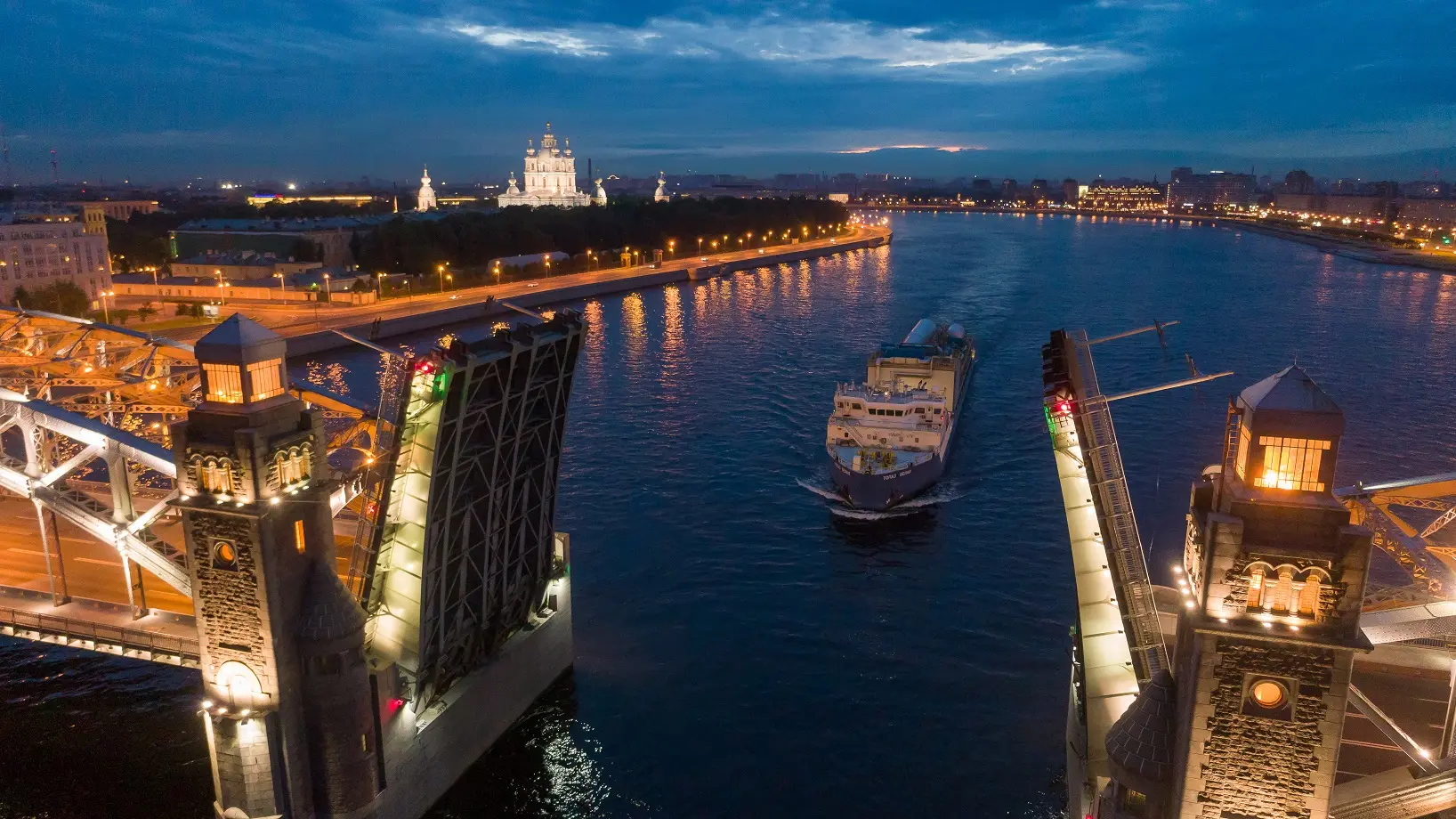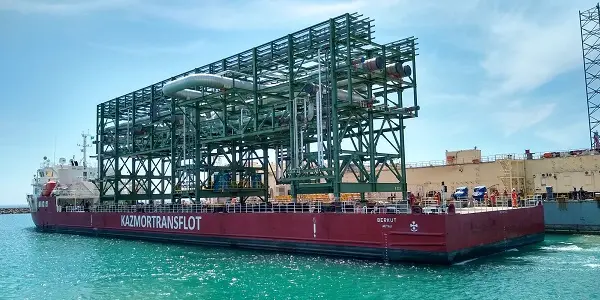
The Future Growth Project-Wellhead Pressure Management Project’s (FGP-WPMP) last Pre-Assembled Unit was safely delivered to the Tengiz field in Kazakhstan on October 28, 2020.

This milestone marks the successful completion of a three-year Sealift campaign involving the marine transportation of 408 large modular cargo items from international locations.
“This is a tremendous accomplishment and proves Kazakhstani companies’ capabilities in fabrication and marine logistics. Regardless of COVID-19, difficult market conditions, and the international scale of the marine scope of work, we are pleased to have met the expectations of our four partners and the Republic of Kazakhstan,”- said Eimear Bonner, TCO General Director, “We look forward to continuing our mutual cooperation with the RoK Government, local authorities and our business partners to advance the project to its completion.”
As planned, all modules are now on site to enable the FGP-WPMP team to continue with stacking and construction activities at Tengiz.
The FGP-WPMP is of national importance and is helping to create a legacy of a trained and skilled local workforce, technology transfer through partnerships with international companies, and upgraded infrastructure in the region.
Since the commencement of FGP-WPMP, TCO has spent over $10.3 billion to purchase Kazakhstani goods and services. Approximately 91 percent of the total project workforce are Kazakhstani citizens. TCO has engaged Kazakhstani entities to participate in FGP-WPMP in engineering, procurement and fabrication services and has pre-screened 2,351 Kazakhstani companies and pre-qualified 1,281 companies. More than 630 contracts have been awarded to Kazakhstani registered companies.
About the FGP-WPMP Sealift campaign
The FGP-WPMP modules, many of which weighed between 500 to 1800 tonnes each, were fabricated in Kazakhstan, South Korea and Italy and transported through the Russian Inland Waterway System (RIWS) and into the Caspian Sea. The total weight of marine cargo transported was almost 280,000 metric tonnes. Local, Kazakhstani registered companies, such as Ersai and KCOI with operations in Mangystau Oblast, proved their capabilities by manufacturing 75 large pre-assembled pipe-racks and 10 remote instrument enclosures according to international standards. The marine work scope involved the operation of more than 126 vessels, of which 40 were newly constructed vessels or significantly modified to support the project. Meanwhile, KazMorTransFlot operated module carrying vessels in the Caspian Sea. In total, the vessels travelled over 140,000 km between Kazakhstan and other international locations. One of the main legacies of the project is that a new Cargo Transportation Route (CaTRo), was specially built at Prorva near Tengiz, and included a 71 km marine access channel, cargo offloading and storage facilities and a haul road to the Tengiz field where modules are being assembled according to plan.